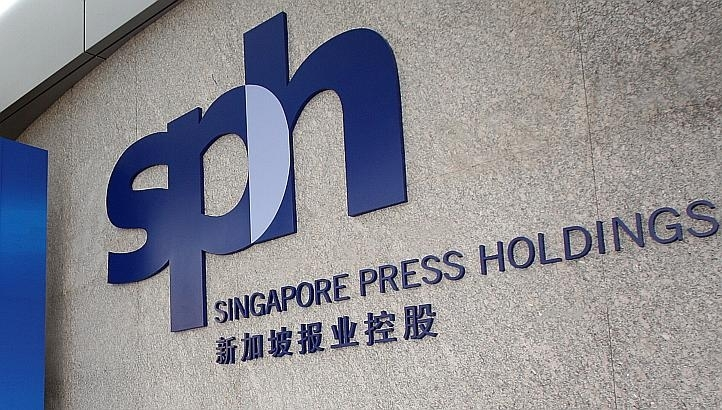Singapore—Video clips from the press conference of Singapore Press Holdings’ on Thursday (May 6) announcing it would restructure into a not-for-profit entity showed SPH CEO Ng Yat Chung taking “umbrage” at a question from a CNA reporter.
A digital reporter from CNA asked if “the media business will now pivot to emphasise editorial integrity, for example, ahead of advertiser interest?”
Mr Ng answered, “If I may just interject, I honestly, I take umbrage at your first question. There are reporters from here who received substantial funding from various sources, and I don’t believe that you will describe yourself as bowing to the needs of advertisers in doing your job.”
His irate answer drew much criticism.
But the Chief Executive Officer of SPH has found a defender in former Nominated Member of Parliament Calvin Cheng, who has put up several posts on the matter.
At first, he called Mr Ng’s response “very disappointing” as well as “an overreaction”.
He wrote on May 6, “My guess is that he got upset about the second question : that he failed to turn around the media business and make it financially sustainable.
“So he took umbrage at the first question.”
On Friday (May 7), however, Mr Cheng wrote another post “to put in a fair word for Mr Ng Yat Chung.”
Mr Cheng wrote that the “vitriol directed at him and him alone is unwarranted” since “It takes a team to sink a ship as large as SPH, and over many many years.”
The former NMP added that SPH’s problems may have begun under Mr Alan Chan, Mr Ng’s predecessor.
“SPH was under his leadership in the crucial years of 2003 to 2017, when traditional media started to get disrupted by the Internet.
“If there was a leader to blame, it is probably him. Former PPS to LKY and an outstanding career civil servant, his tenure as SPH CEO on hindsight will be seen as nothing short of disastrous.”
However, Mr Chan also had advisors who could have lent him better support, Mr Cheng added.
And the former NMP believes that it was too late by the time Mr Ng took the lead.
“When Mr Ng came on board, the ship was arguably already sunk.
“And even if he failed to save it, there was also a team, including a board helmed by a former Minister.”
SPH, he wrote, “would have done better doing a global search and paying top dollar for a foreigner who had successful turnaround experience.
“Just because one is a successful civil servant doesn’t mean one can be a successful business leader.
“And vice versa.”
Mr Cheng also made the case for experience, saying that Mr Ng’s—after 25 years in the civil service of a small country—had not been that broad.
He then suggested a systemic change, for civil service careers to be extended beyond the age of 55
“The civil service careers have to be stretched out longer, and if this is not possible, then let go of talent earlier to the private sector, so these people don’t end up unable to transition when forced to retire in their 50s,” he added.
Mr Cheng also pointed out that Singapore’s “best people” need “to go into business too, not just the military and civil service”.
“And then maybe our precious home-grown Singaporean companies don’t fall one by one, when good people with a lifetime of the wrong experience are parachuted in as business leaders,” he added.
“For a good example of how a foreign-born global talent can not only save but grow a home-grown business, look no further than DBS.”
DBS’ CEO Indian-born Piyush Gupta, who attended the elite St Stephen’s College, Delhi, and Indian Institute of Management, Ahmedabad, started his career in Citibank India and became a Singapore citizen in 2009
/TISG
Read also: SPH to restructure media business into a not-for-profit entity
SPH to restructure media business into not-for-profit entity

